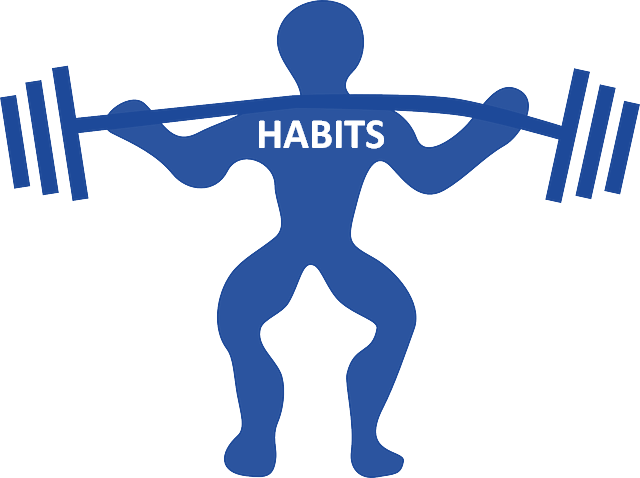 As Dr. Wendy Wood tells us in Good Habits, Bad Habits, most of us set goals and intentions and then effortfully control our actions to attain them. Behavior control through self-control is not as effective as behavioral change through altering contexts. Contexts provide cues that trigger habitual behavior. Rather than work against the contexts and cues that give rise to bad habits, use thoughtfulness and creativity to establish contexts that work in your favor.
As Dr. Wendy Wood tells us in Good Habits, Bad Habits, most of us set goals and intentions and then effortfully control our actions to attain them. Behavior control through self-control is not as effective as behavioral change through altering contexts. Contexts provide cues that trigger habitual behavior. Rather than work against the contexts and cues that give rise to bad habits, use thoughtfulness and creativity to establish contexts that work in your favor.
Arrange your life to reliably, unfailingly cue your desired habits. Locations, people, time of day, and/or other actions trigger habits.
- Set aside the same time every day for exercise. Better yet, make a date to exercise with a friend or sign up for a group class at the appointed hour.
- Tie an activity that you really enjoy doing to a behavior that you want to become automatic. For example, give yourself permission to indulge in an hour of pleasure reading (or embarrassingly mindless TV) while working out on the treadmill. Restrict that indulgence to treadmill time. Make it something to which you look forward.
- Swap a good habit for a bad one – e.g., make your midday snack a deliciously healthy protein shake instead of a bag of chips.
Set yourself up for success.
- Get a pill box and set up a week’s worth of vitamins at the start of each week. Take vitamins with every meal.
- Load up the refrigerator with heathy snacks – carrots, celery, cherry tomatoes – and keep the cupboards free of junk food.
- Plan recipes for the week, make a shopping list, and make sure you have all the ingredients on hand for meal preparation. To save time and energy, create “set lists” and rotate among them. (Most of us tend to operate off the same basic meal plan.)
- Pack a lunch for work. It’ll ward off temptation and save you money.
- Surround yourself with people who share your goals and stand ready to cheer you on. Tap into their wellspring of ideas to adjust your patterns and stay the course.
Leverage friction.
- Use cash instead of credit or debit cards to elevate consciousness about every dollar you spend. When out of cash, don’t make any more purchases.
- Remove temptations from the house and workplace. Make it really inconvenient to succumb.
- Move the TV to a room that is as far away from the kitchen as possible. Have crosswords, sudokus, jumbles, etc. available for distraction when bored.
Break bad habits by getting out of ruts.
- Take a walk with a friend or partner after work rather than immediately veg in front of the TV. Use stimulating conversation to unwind.
- Turn off all screens 1-2 hours before bedtime and read a book, take a soothing bath, meditate, or the like. Don’t disrupt a good night’s sleep by binge watching your show d’jour. It’ll be there tomorrow!
It may take a little effort initially, but once you consistently repeat behaviors in response to cues, your desires will start to change. You’ll prefer the things that feel familiar, predictable, and easy. And it won’t feel like a “death march” to get where you want to go.
Beyond the benefit of supporting goals, habits keep us steady during times of stress. The familiar routines help us cope with our feelings and give us a sense of control. And as we get through the waves of anxiety, we think more clearly and act consciously and wisely.